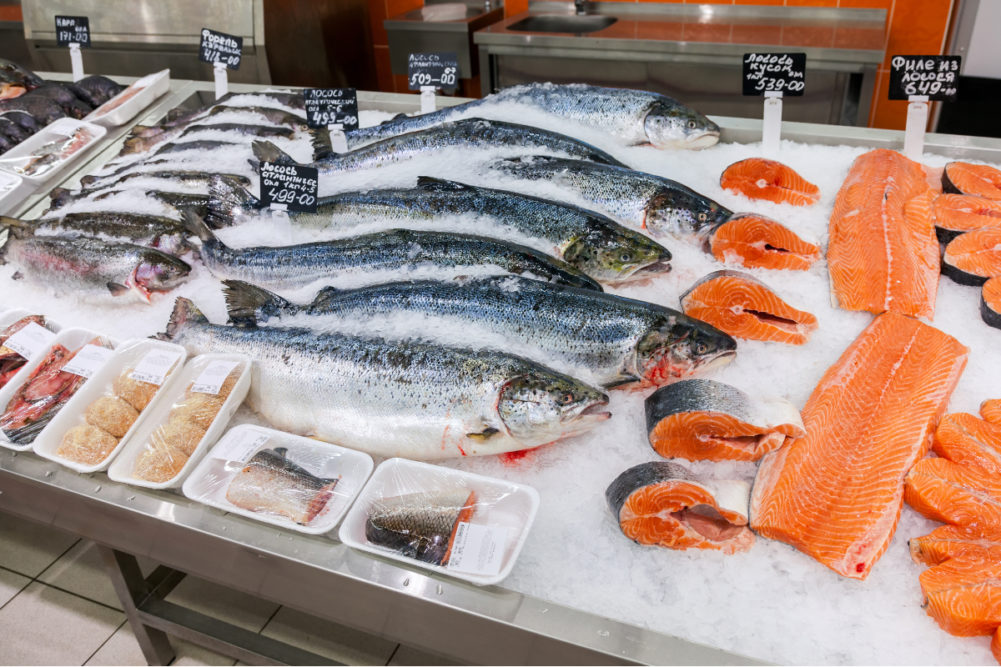KANSAS CITY - Retail grocery seafood sales have almost doubled during the pandemic, said Brian Perkins, regional director for the Americas in the Marine Stewardship Council’s Washington, D.C. US headquarters.
An October webinar led by IRI and 210 Analytics showed huge gains across all seafood categories at retail, fresh and frozen.
“It’s absolutely astounding,” Perkins said.
Pre-pandemic, the thinking was that many people lacked confidence about preparing seafood at home. When the restaurant industry shut down and they realized they couldn’t get their favorite seafood dishes at home, however, necessity kicked in, Perkins said.
“It seems like people are embracing cooking seafood, and the expectation is that it will continue,” he said.
The webinar also drove home the message that more and more Americans are looking for alternatives to red meat. And seafood, Perkins said, provides far more variety than any other protein available.
MSC label gaining ground
In the past year, MSC has seen a significant increase in the number of retail seafood SKUs carrying the group’s blue fish logo, Perkins said.
And that should only increase in fresh product, given a recent breakthrough on the frozen side. Mrs. Paul’s and Van De Kamp, that No. 2 and No. 3 seafood brands in the country, have committed to putting the MSC label on all of their retail products. Labels were starting to show up on product this fall, Perkins said.
“I assume by the end of this quarter they’ll have it completed,” he said. “It’s a virtuous circle. These big guys have a lot of shelf space, and the label really pops for a lot of consumers.”
Jackie Marks, MSC’s senior public relations manager, is leading a major effort to reach out directly to consumers to encourage them to demand the MSC label on the seafood they buy.
“We’re finding that consumers care about the ocean and are willing to swap out foods to make sure they’re eating more sustainably,” she said, adding that in surveys, shoppers say they want companies’ sustainability records to be verified by a third-party group like MSC.
For many retailers and suppliers, putting the MSC or another label on involves an extra step and a fee, and many are still unwilling to pay it, Perkins said.
But as with Mrs. Paul’s and Van De Kamp’s leading the way on frozen product, Walmart and Costco have taken a huge step on the fresh side. Both retail giants have asked their suppliers to add the MSC label to their products.
“We’ve seen a big shift in the last few years,” Perkins said.
And the pandemic, he added, has only strengthened consumers’ desire to know where their food comes from and to ensure that it’s produced in a healthy, sustainable way.
“Sustainability is becoming almost like table stakes,” he said.
Breakthrough for Maine lobster fisheries expected
One of the biggest headlines in domestic production of lobster is the suspension of Maine fisheries due to concerns over right whales becoming entangled in fishing gear,
Entanglement in gear has been the leading cause of death for right whales over the past decade. Perkins is optimistic that that the suspension of Maine lobster fisheries will be lifted.
“The US government has to come up with an action plan, and we’re reasonably confident that will happen,” he said.
Canadian lobster fisheries, meanwhile, have not been suspended and product continues to come into the US from north of the border, Perkins added.
Some wild-caught northern shrimp, meanwhile, is shipping to retail, but the vast majority of shrimp sold in stores is aquaculture, with the exception of some Gulf Coast product, Perkins said.
“None of it is certified at this time, but they’re looking at it,” Perkins said.

